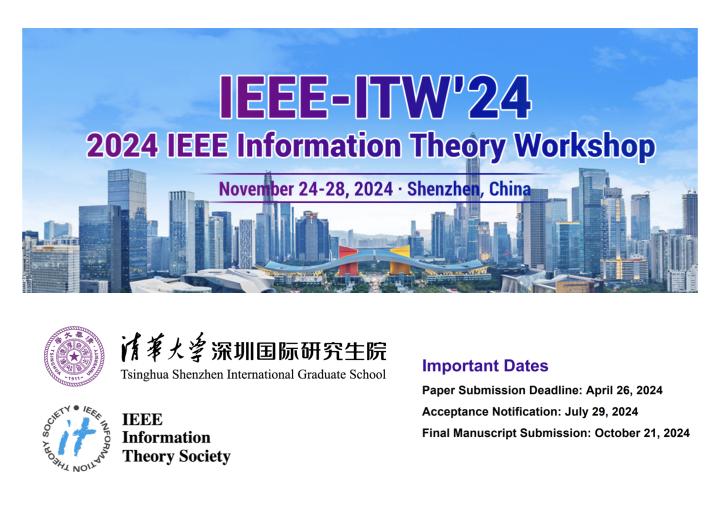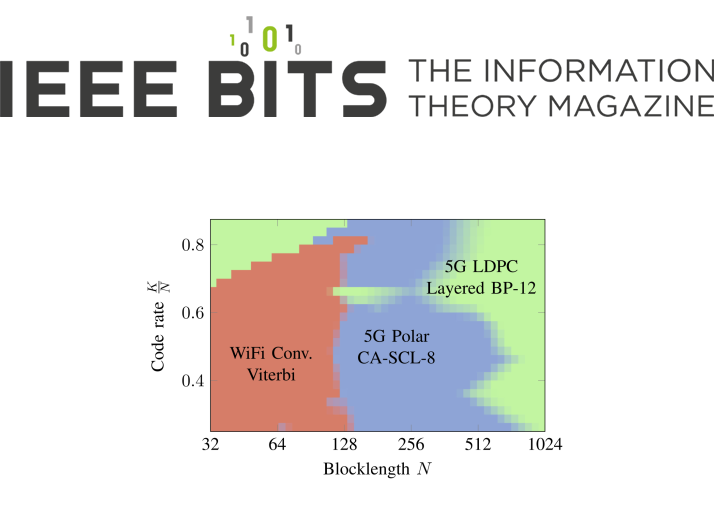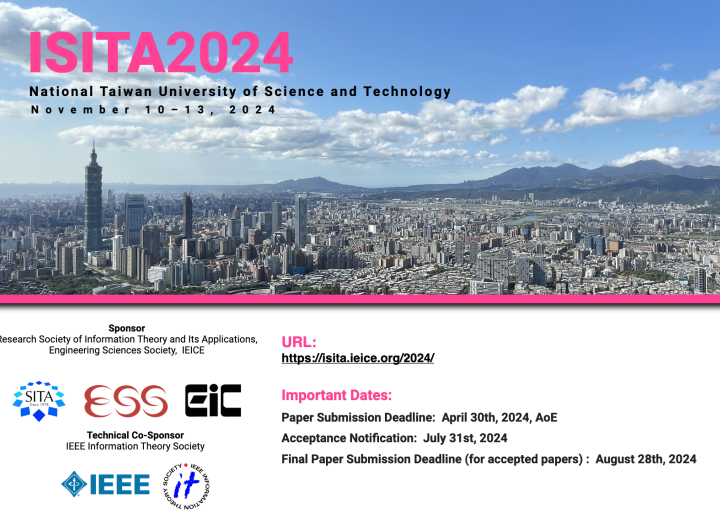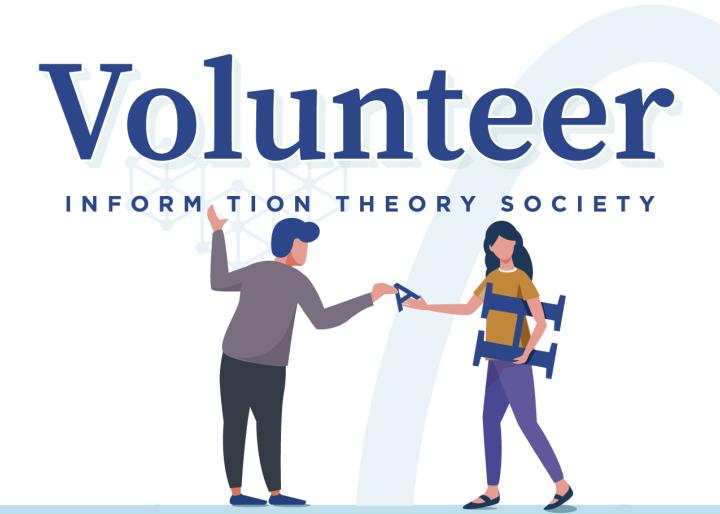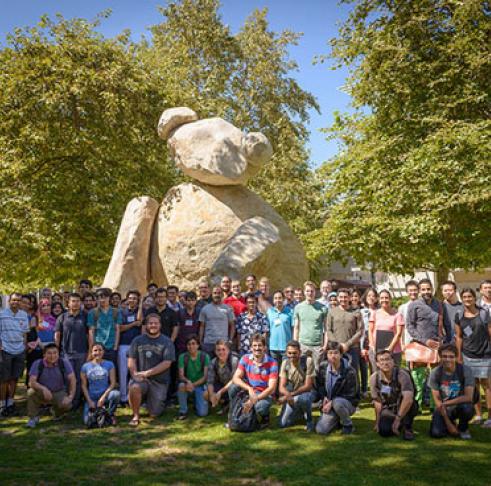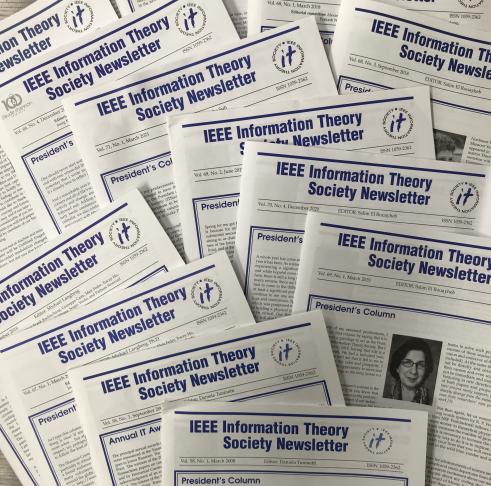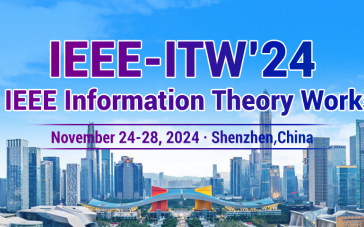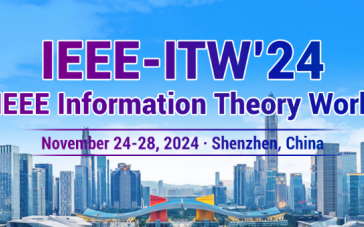Information Theory Society
The IEEE Information Theory Society is the premier professional society dedicated to the advancement of the mathematical underpinnings of information technology for the benefit of humanity. Information theory encompasses the processing, transmission, storage, and use of information, and the foundations of the communication process.
Aspects of Our Society
Outreach
A gathering of videos, books and more that show how information theory impacts our lives.Meet IT Society Students
The Student and Outreach Subcommittee plans student and outreach activities at symposia and workshops.Read Our Newsletter
The IEEE Information Theory Society Newsletter connects our members and is published four times a year. Beginning with the March 2022 issue, the Newsletter is online only.Upcoming Events
Deadline Extension: IEEE-ITW'24
2024 IEEE Information Theory Workshop (ITW)
IEEE International Symposium on Information Theory (ISIT) 2025
News
Call for ISIT and ITW Proposals
IEEE Information Theory Society is calling for proposals for the International Symposium on…
Call for Nominations: Padovani Lecturer, Goldsmith Lecturer, and Distinguished Lecturers
The IEEE Information Theory Society solicits nominations for the 2025 Padovani Lecturer, the 2025…
Call for Nominations: Joy Thomas Tutorial Paper Award
The Society solicits nominations for the inaugural IEEE Joy Thomas Tutorial Paper Award. Deadline:…
Dr. Mario Diaz Torres: Obituary and Request for Help
We regret to share that the IT Society lost a rising information theorist and statistician Dr.…
Conferences
Australasian Summer School: Recent Trends in Algorithms
Free 4-day Australasian Summer School on "Recent Trends in Algorithms" at the University…
IEEE Globecom 2024 Workshop on Channel Coding beyond 5G: Call for Papers
Workshop on Channel Coding beyond 5G (in conjunction with IEEE Globecom 2024) is now open for…
Machine Learning and Compression Workshop @ NeurIPS 2024
The workshop solicits original research in the intersection of machine learning, data/model…
Jobs Board
EE Systems faculty search at Caltech
A new faculty search at Caltech covers all areas of EE systems and is open to applicants at every…
Researcher Positions in Space Communications
We are looking for postdoctoral researchers to join us in the new ERC-AdG funded project GO SPACE…
Open Positions on Associate Professor / Assistant Professor / Postdoc Positions
ICIT Lab of School of Electronics and Information Technology is recruiting Associate Professor,…
Call to Action
Recent Journal Issues
IEEE Journal on Selected Areas in Information Theory
IEEE BITS the Information Theory Magazine
Research In Information Theory
Quantum Sensing and Communication via Non-Gaussian States
Source Coding for Markov Sources With Partial Memoryless Side Information at the Decoder
Deviation From Maximal Entanglement for Mid-Spectrum Eigenstates of Local Hamiltonians
Fisher Information Under Local Differential Privacy
We develop data processing inequalities that describe how Fisher information from statistical samples can scale with the privacy parameter $\varepsilon $ under local differential privacy constraints. These bounds are valid under general conditions on the distribution of the score of the statistical model, and they elucidate under which conditions the dependence on $\varepsilon $ is linear, quadratic, or exponential.
On the All-or-Nothing Behavior of Bernoulli Group Testing
In this article, we study the problem of non-adaptive group testing, in which one seeks to identify which items are defective given a set of suitably-designed tests whose outcomes indicate whether or not at least one defective item was included in the test. The most widespread recovery criterion seeks to exactly recover the entire defective set, and relaxed criteria such as approximate recovery and list decoding have also been considered.


